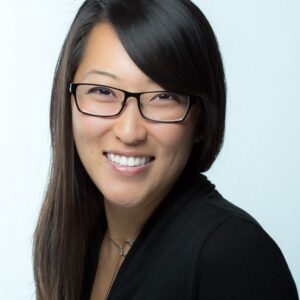2023 New Vision Awardee - Christina B. Young

I am a clinician-scientist with expertise in neuropsychology, neuroimaging, and statistics. I am dedicated to identifying real-world declines in cognition that track with the pathological changes due to Alzheimer’s disease and related dementias. I am especially interested in identifying novel approaches of objectively tracking cognitive change in a manner that is ecologically valid and of low burden to participants. My unique research program takes a clinically informed approach to identify new ways of objectively measuring cognitive concerns commonly reported by patients. For example, I have recently begun to examine how speech changes may reflect early cognitive decline due to Alzheimer’s disease through my NIA K99/R00 and Alzheimer’s Association Research Fellowship to Promote Diversity (AARF-D) awards, and I am excited that the New Vision Research Award allows me to expand my research program beyond speech to develop an objective marker of item misplacement.
Item misplacement is one of the most commonly reported functional changes in clinically unimpaired older adults, and has also been associated with increased odds of amyloid positivity and reduced hippocampal functioning. However, current assessments of item misplacement are overly simplistic (e.g., usually only one broad question about whether item misplacement generally occurs despite substantial variability in which and how often specific items are misplaced) and rely completely on self-report, which is subject to recall errors and biases. To address this gap, my proposal will take a multi-level approach to quantify (1) self-reported and (2) objectively determined item misplacement in amyloid negative and amyloid positive clinically unimpaired older adults. Specifically, I will develop a detailed questionnaire of item misplacement, use event-based ecological momentary assessment to capture item misplacement as it occurs in real time, use time-based ecological momentary assessment to measure mood and fatigue factors that may influence item misplacement, and leverage Bluetooth low energy proximity sensing technology to objectively measure item misplacement. With these aims and this approach, I will test the central hypothesis that subthreshold functional changes in item misplacement occurs during the initial pathological stages of Alzheimer’s disease and that these changes can be captured through real-world, low-burden tools. Given the novelty of my proposal, I am especially thankful for New Vision Research’s interest in high-risk high-reward research designs as my project has the potential to offer a low-burden, scalable, and inclusive way of tracking a common symptom of Alzheimer’s disease for clinical care and in clinical trials.
I hope that my research program inspires new ways of thinking about cognitive assessment and monitoring. Although current neuropsychological tests provide valuable and detailed domain-specific information about an individual’s cognitive ability, they are difficult to scale as they require trained administrators and are generally inaccessible to a large portion of the population. Scalable and more passive approaches to measuring cognition can supplement traditional neuropsychological testing and can be used for screening. Critically, these scalable and low-burden cognitive approaches can be combined with Alzheimer’s disease biomarkers data. In addition to understanding cognition, the other pillar of my research uses multimodal imaging techniques to assess different aspects of Alzheimer’s disease related changes including amyloid and tau using PET, neurodegeneration using structural MRI, and brain function using functional MRI. My approach to cognitive research could certainly be examined in relation to other Alzheimer’s disease factors aside from amyloid and tau, and could potentially be extended to other diseases. This provides exciting opportunities to collaborate with others who are also interested in cognition.
I am humbled and incredibly grateful to receive the New Vision Investigator Award. Because I have only been in the Alzheimer’s research space since 2020 and in-person meetings were canceled for most of that time due to COVID-19, I previously had limited opportunities to interact face-to-face with leading Alzheimer’s disease researchers and innovative early-career scientists. The opportunity to share and obtain feedback on my research ideas at CCAD, as well as learn from others has been invaluable to my career development.
